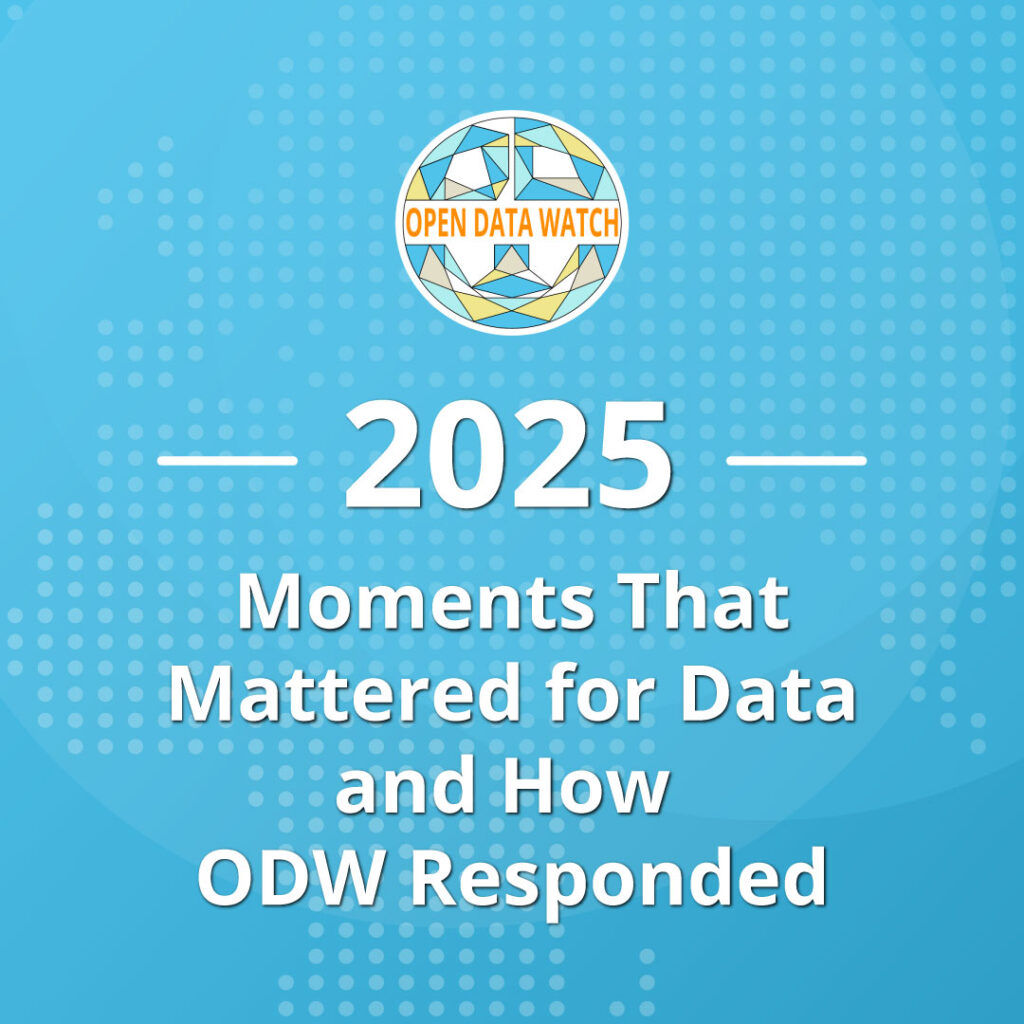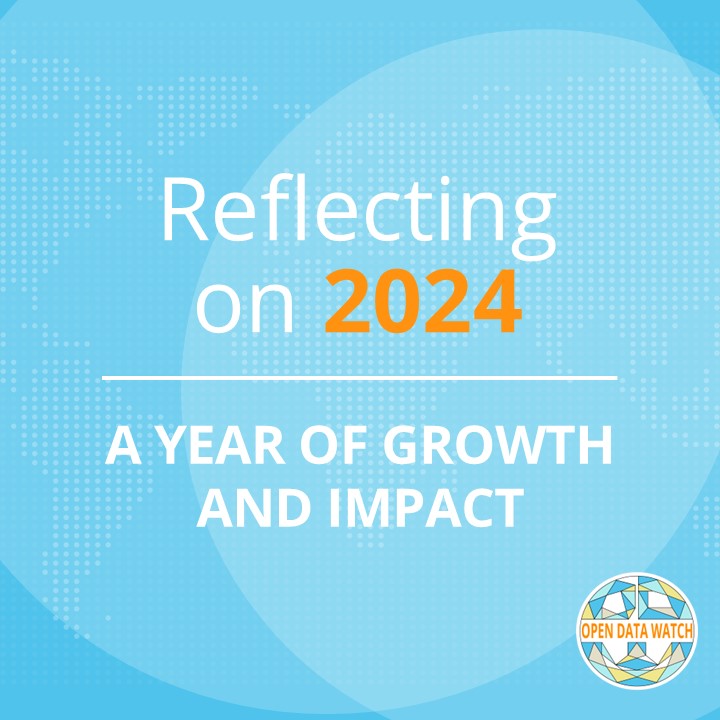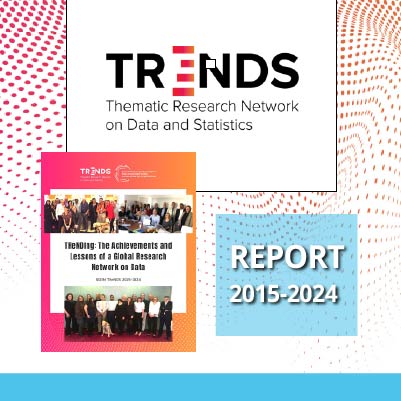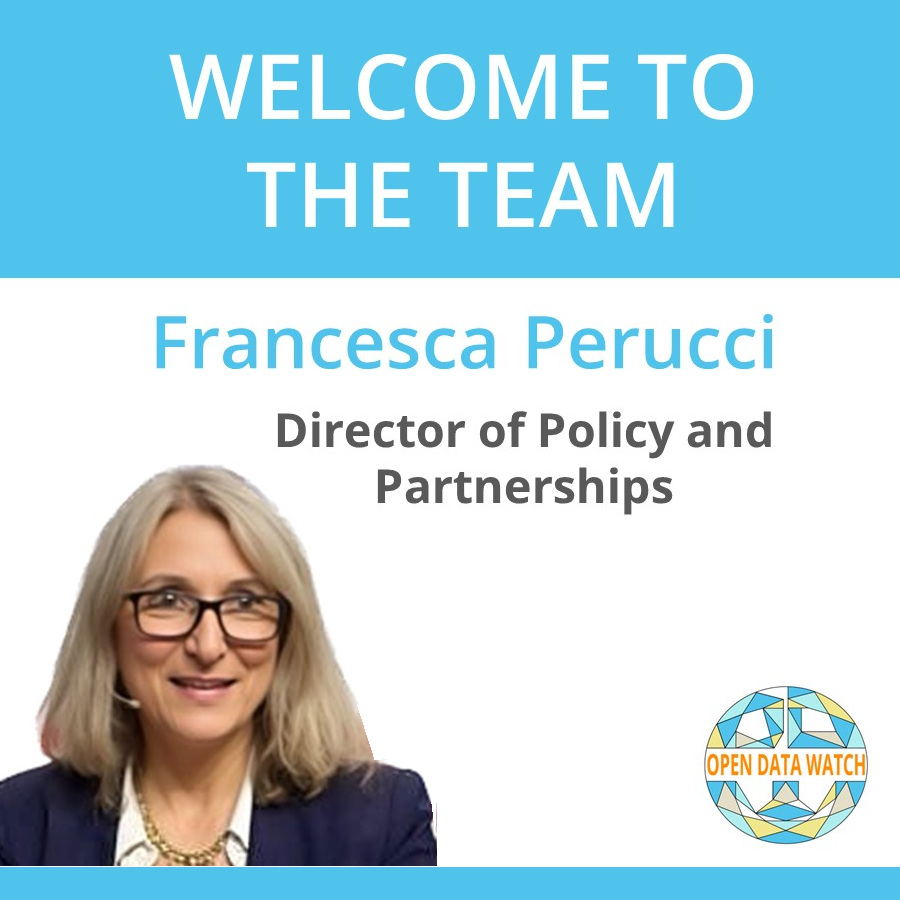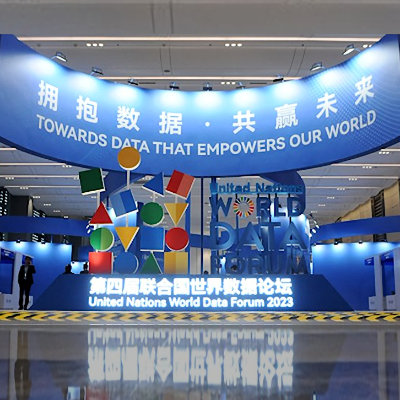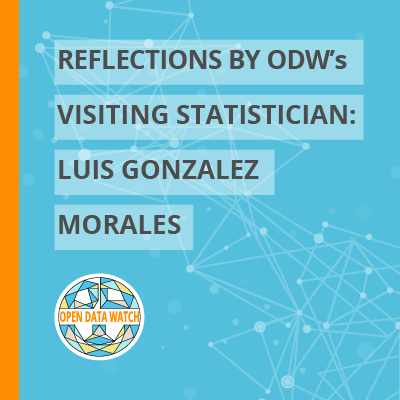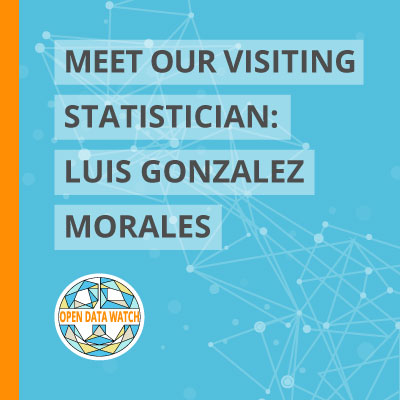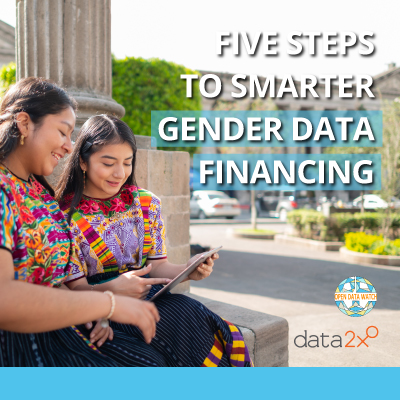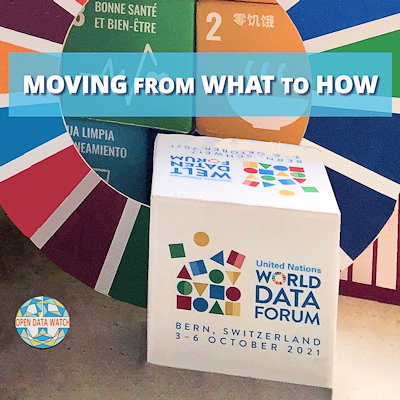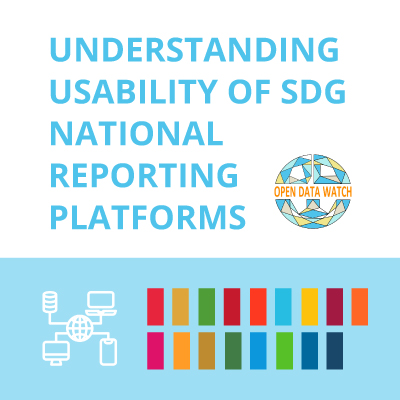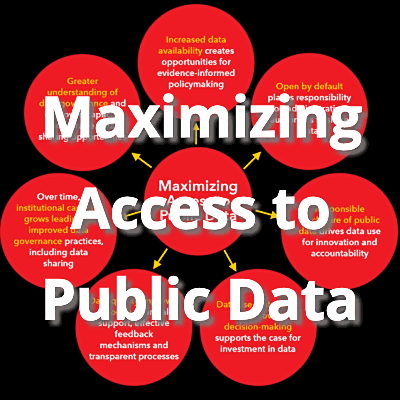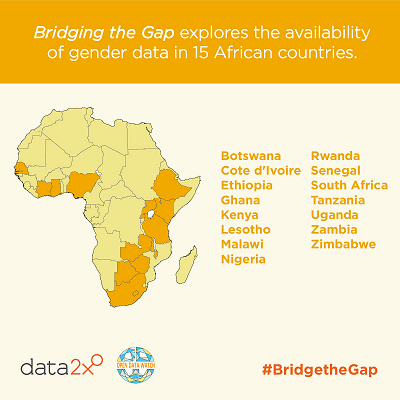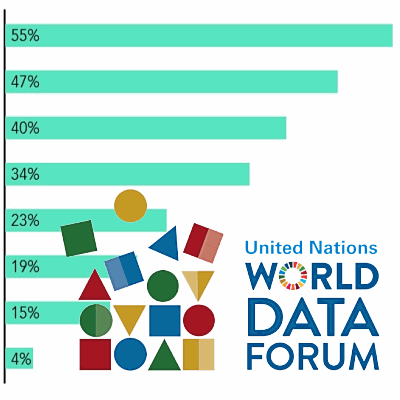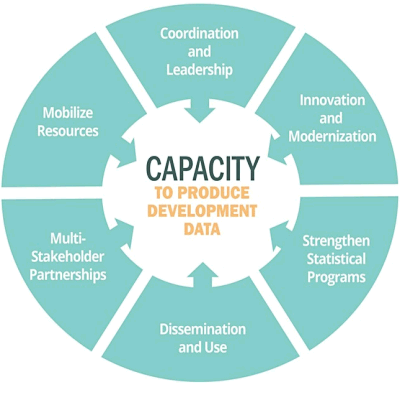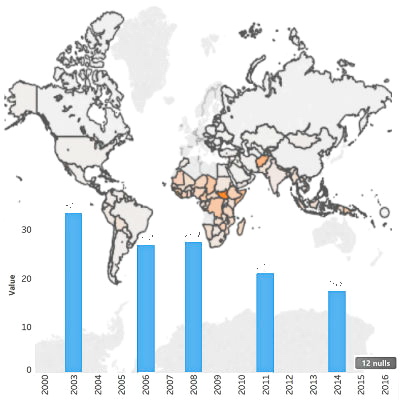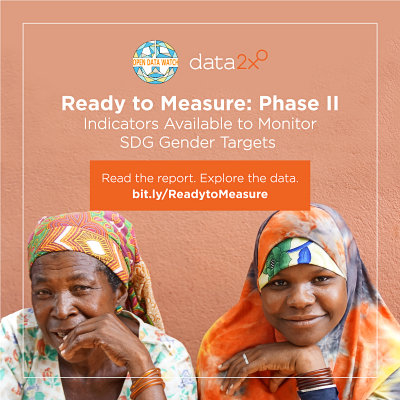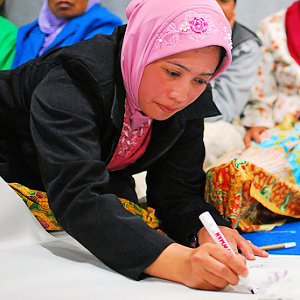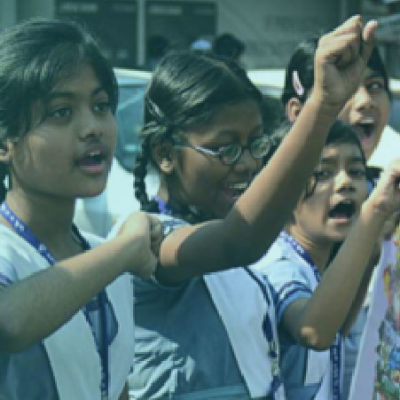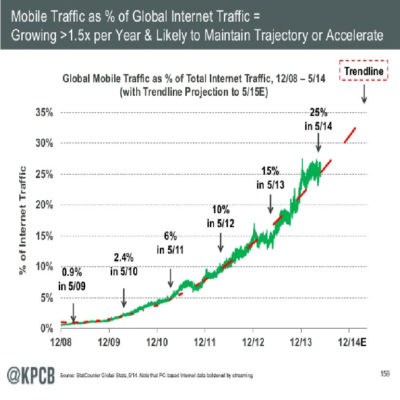BLOG
OUR WORK
TOPICS
Search Data Support Blog Posts
Moments that Defined the 2025 Data Community
For the development data community, 2025 was a defining year, marked by disruption and reinvention, major funding cuts, political shifts, and unprecedented strains on data systems just when demand for data reached all-time highs.
Citizen Data at HLPF: Advancing Inclusive Data
A workshop at the High-Level Political Forum (HLPF) examines Copenhagen Framework case studies and practical tools for citizen-generated data to strengthen official data systems.
Bridging Communities: Citizen Science Meets Citizen Data
Scholars, practitioners, and facilitators in the field of participatory sciences gathered at the 2025 Participatory Sciences Conference to discuss how to bridge citizen data and citizen science communities to pave the way for powerful new collaboration on complex social, economic, and environmental challenges.
Beyond Disaggregation: Intersectional Data for Development
While traditional data disaggregation — separating data by gender, age, or income — helps identify disparities, it often misses how multiple factors overlap. Intersectional data allows us to see the full picture.
Welcoming Meriem to the ODW Team
After years of collaboration to build more inclusive and responsive data systems; Open Data Watch welcomes Meriem Ait Ouyahia as the Gender Data Network Coordinator.
2024 at ODW: A Year of Growth and Impact
As 2024 draws to a close, ODW looks backs on a decade of growth and learning — supporting countries to transform their data ecosystems, monitoring and promoting high-quality data and standards, providing research and data support to both countries and agencies, and leveraging combined substantive and networking resources to offer practical policy advice to improve data systems.
TReNDing: Achievements and Lessons of Global Research on Data
For a decade, TReNDS has gathered leading experts and actors to discuss the power of data to achieve progress on SDGs. It’s latest report reflects on the network’s achievements and proposes a way forward.
Open Data Watch Celebrates 10 Years
Ten years ago, Open Data Watch (ODW) started with a clear goal: that sustainable development can and must be empowered with quality operational data. It has been a journey defined by energizing partnerships, adding value, staying adaptable, and continually evolving.
ODW at the 2024 World Data Forum
Aiming to spark innovative ideas, collaboration, and partnerships for better sustainable development data, this year’s World Data Forum in Medellín, Colombia, will for the first time be running concurrently with a global “Commit to Data” campaign. ODW is active in both.
Uzbekistan Reinforces Open Data and Gender Data
A series of workshops in Uzbekistan focused on enhancing open data practices, with emphasis on gender-related information, to foster more inclusive decision-making.
Celebrating Open Data Week
Celebrated during the first week of March, Open Data Day is a perfect time to remember the five ways to to amplify data use and drive meaningful impact in people’s lives through policy guidance, data support, monitoring and assessments..
Welcoming Francesca Perucci to the Open Data Watch Team
Open Data Watch (ODW) is thrilled to announce the newest member of our team, Francesca Perucci, an expert in the field of development data and the advancement of global data initiatives.
Bringing NSOs’ Existing Strengths to Data Stewardship
Data stewardship presents challenges for National Statistical Offices, but NSOs also start from points of strength — like experience with fundamental principles, rigorous data definitions and standards, and a strong peer network — that are real assets for effective data stewardship.
UNWDF: Advancing Data Use and Overcoming Data Graveyards
As our rate of data production grows exponentially, gaining insight into the needs of users of official statistics is key for countries and was a hot topic in World Data Forum discussions on data graveyards and institutional barriers to effective data use
5 Lessons from Open Data Workshops in Latin America and the Caribbean
To promote national technical capacity to open and use data, Open Data Watch and the Inter-American Development Bank hosted a series of workshops in five countries in Latin America and the Caribbean.
Farewell to ODW’s Visiting Statistician
ODW’s first Visiting Statistician, Luis Gonzalez Morales, reflects on his sabbatical experience while at Open Data Watch and as he returns to the UN Statistics Division.
Open Data Watch – Our Story in 2022
As 2022 comes to a close, Open Data Watch (ODW) reflects on what has been achieved and what is left to be done to support open data for development, better data governance, fewer data gaps, and more impactful data use to improve people’s lives.worldwide — all eight billion of them.
Meet ODW’s Visiting Statistician
Open Data Watch is pleased to welcome our first Visiting Statistician, Luis Gonzalez Morales, who joins us from the United Nations Statistics Division.
Five Steps to Smarter Gender Data Financing
Accessible and timely sex-disaggregated data are critical in helping policymakers understand and address the unique challenges that women and girls face. But do investments in gender statistics match their importance?
UN World Data Forum 2021: Moving from “What” to “How”
The UN World Data Forum 2021 was the first major opportunity since the pandemic for development data experts and users to assess the lessons and impact of COVID-19 on Sustainable Development Goals. Four main takeaways show a move from “what” to “how” data can be used to achieve SDGs.
Three Questions to Ask about the Usability of SDG National Reporting Platforms
Monitoring several national Sustainable Development Goals (SDG) reporting platforms and portals, Open Data Watch reports a number of search and access problems and makes recommendations for potential improvements.
Is Website Downtime a Barrier to Open Data?
It is a serious problem for data users when critical official datasets cannot be accessed because an NSO website is offline. How do NSOs compare to businesses that work hard to ensure constant uptime for their websites and what lessons can be learned?
ODW Brief Tackles Public Data Sharing Approaches
Data have new significance, due to sheer volume and importance for decision making. Calls to make publicly-produced data freely available are increasing in step. But the potential of data to…
Latest Efforts to Bridge the Gender Data Gap
As a side-event during this year’s UN Statistical Commission, Data2X, and Open Data Watch will launch a new technical report , Bridging the Gap: Mapping Gender Data Availability in Africa. In advance,the two teams sat down with GPSDD to discuss the motivation behind the project.
World Data Forum: Catalyzing the Use of Official Statistics
A two-part research project on NSO data use was presented at the World Data Forum. One part seeks to understand perceptions of data use through snap polls. The other looks at potential ways to measure actual data use.
World Data Forum Preview: Catalyzing the Use & Impact of Official Statistics for SDGs
A new collaborative research study to be presented to the October 2018 World Data Forum in Dubai finds potential ways to innovate and modernize national statistical systems to catalyze the use and impact of official statistics for sustainable development.
Catalyzing the USE and IMPACT of Official Statistics
A new ODW project with AidData and PARIS21 seeks to collect information on the barriers faced by National Statistical Offices as they respond to increased demands to produce more and better statistics and increase the use and impact of those statistics.
Visualization for a Better Look at Gender Data
“The greatest value of a picture is when it forces us to notice what we never expected to see.” Data visualizations can help us discover innovative solutions, support new initiatives, and raise awareness of data gaps that impact women and girls around the world.
Ready to Measure: Phase Two Ambitions
Realizing the ambitious promises made by the 17 Sustainable Development Goals – including Goal 5 on gender equality – will require a serious commitment to the collection and use of more and better gender data. Through the new “Ready to Measure: Phase II” report and gender data query tool, we aim to contribute to this.
What are the principles of joined-up data?
Five practical principles can help clarify the real gap in guidance about global data interoperability – the ability to access and process data from multiple sources without losing meaning, and integrate them for mapping, visualisation, and other forms of analysis…
Civil Registration and Vital Statistics: Data Gaps and Possible Solutions
Accurate and open data are a catalyst for action. Data gaps limit the ability to harness such impact. Many have their origin in civil registration and vital statistics (CRVS) systems that fail to record births, deaths, marriages, and divorces.
A Data-Driven Initiative for Gender Equality
The Clinton Foundation and the Gates Foundation are joining forces to gather data on and analyze the gains made for women and girls in the two decades since the UN Fourth World Conference on Women in Beijing in 1995. The initial report – the “No Ceilings Full Participation Report” – comes out today at a major event in New York City.
Towards a Complete Civil Registration & Vital Statistics System in Africa
Millions of people in Africa are denied basic services because of deficient CRVS and national identification systems. Lacking records of their birth and civil status, they are excluded from health coverage, schooling, social protection programs, and humanitarian response in emergencies and conflicts. This can change.
Better go mobile!
If you are developing Open Data applications, best to keep in mind the growing mobile market. While you may think your clients are still sitting behind desktop machines or balancing laptops on their knees, there may also be lots of data hungry mobile users who should not be neglected.


